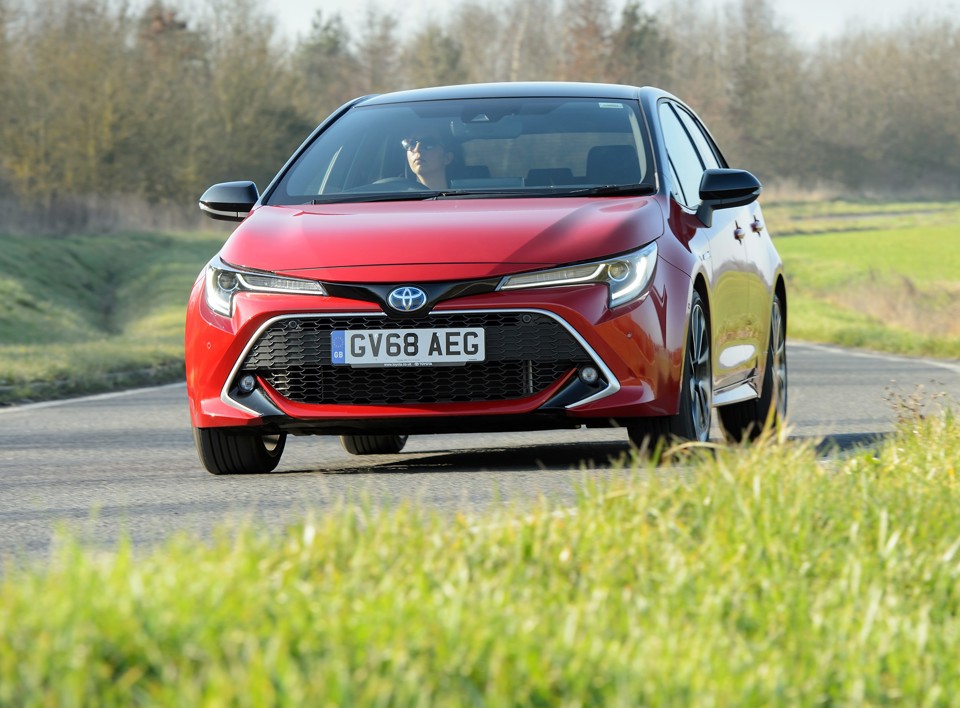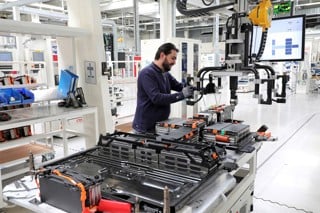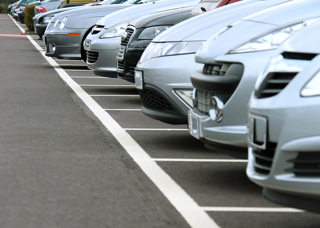Demand for SUVs appeared to stall across Europe during June creating speculation that the segment may have peaked.
The region suffered a 7.9% overall decline in registrations, according to Jato Dynamics.
SUV registrations grew by just 0.7% last month as 1.49 million vehicles were registered - the highest monthly drop in new car registrations so far in 2019 and the lowest June volumes result since 2015.
Felipe Munoz, Jato’s global analyst, said: “June’s results confirm that conditions in Europe are getting worse.
“We continue to see a repeat of the same pattern: lower consumer confidence is mostly affecting diesel car registrations, which used to dominate the European landscape.”
Jato reported that the ongoing crisis of confidence in diesel vehicles had particularly impacted Scandinavia during June, where registrations fell by 52% to just 20,092 units last month as diesel vehicles were outsold by electrified vehicles (20,182 units) for the first time.
Europe-wide diesel car registrations fell by 21% in June - accounting for just 31% of the total market- while demand for electrified vehicles increased by 20%.
However, the latter’s growth is still not strong enough to enable AFVs to become a big player on the market, as they still account for just 7.5% of all registrations, Jato said.

Munoz added: “The drop seen in diesel car registrations continues to be higher than the growth posted by electrified cars. In order to see a real change in their market position, electrified vehicles need to attract more consumers, or else they won’t be able to capitalise on the demise of diesel.
“But the most worrying result from June was not the continuous diesel decline, but the slowdown in demand for SUVs.”
SUV registrations totalled 556,400 units during the month, up by only 0.7% compared to the 552,500 units of June 2018.

Munoz said: “Although it was still the third highest month ever for sales in the segment (behind March 2018 and March 2019), there are two factors that explain the limited growth.
“The first is that the poor conditions of the wider market are finally impacting SUVs, which are usually more expensive than regular car types.
“The second, which is more concerning, is that SUV demand may be peaking after many years of growth. If the second explanation is true, then Europe could be losing its main driver of growth.”
Most of the slowdown in the SUV segment in June came from premium SUVs, where demand fell by 5% as a result of double-digit drops at Mercedes, Volvo and Land Rover.
Several mainstream brands posted growth, such as Seat (+37%), Dacia (+21%) and Volkswagen (+19%), but the three most popular SUV models posted the biggest drops: Nissan Qashqai (-15%), Volkswagen Tiguan (-18%) and Peugeot 3008 (-18%).
There were however some success stories in June, however.
Tesla posted the highest market share gain, as registrations increased from 4,034 units in June 2018 to 14,106 units last month as deliveries of its Model 3 EV saloon continue.
In June 2019, the Model 3 was Europe’s best-selling premium midsize sedan, and – thanks to this model – Tesla has been able to more than triple its sales in the first half of 2019.
Toyota was the other big market share winner of the month.
The British-built Corolla (picutred above) performed far better than the Auris, and the new Rav4 continued to climb the SUV rankings, hitting the top 10 mainstream compact SUVs. Along with Lexus, these brands controlled 72% of the hybrid car market in June.
It was also a good month for the Volkswagen T-Cross, which hit the top 50 with 11,058 recorded sales, and the Citroen C5 Aircross, which recorded 7,741 sales and outsold the Mazda CX-5 and Jeep Compass.
Meanwhile, the Mercedes A-Class occupied the fourth position amongst compact cars – only behind the Golf, Focus and Octavia, and the Ford Focus was boosted by increased demand in Germany, Italy and France.
The Hyundai Kona also did well in June, recording almost 8,700 sales – of which 22% originated from its electric version. Elsewhere, the Seat Tarraco recorded 3,910 registrations and became Europe’s 4th best-selling mainstream midsize SUV – only behind the 5008, Kodiaq and Outlander.






















Login to comment
Comments
No comments have been made yet.